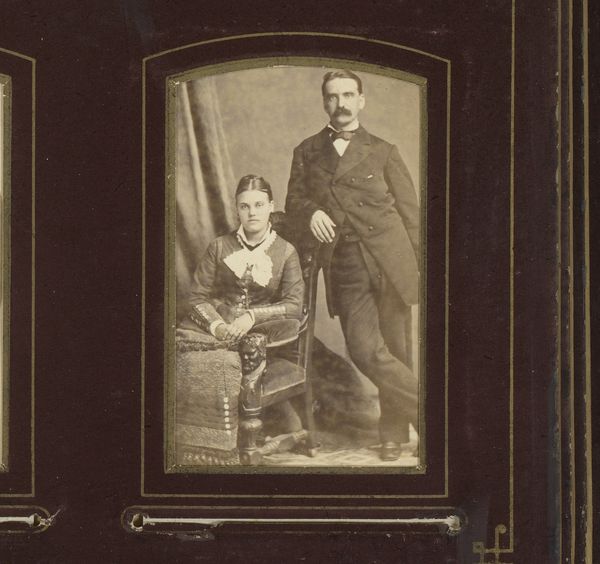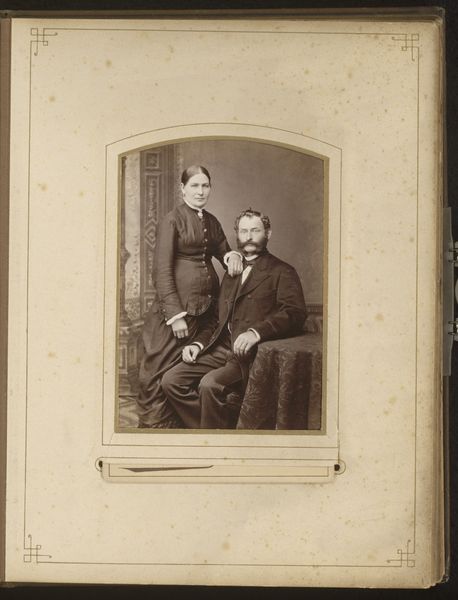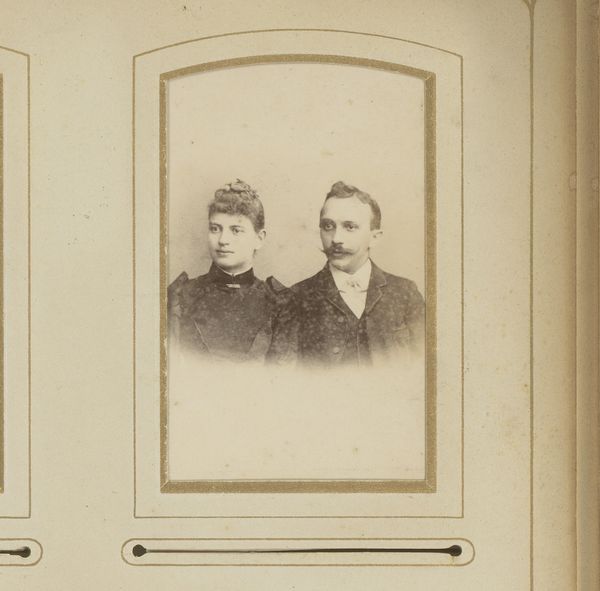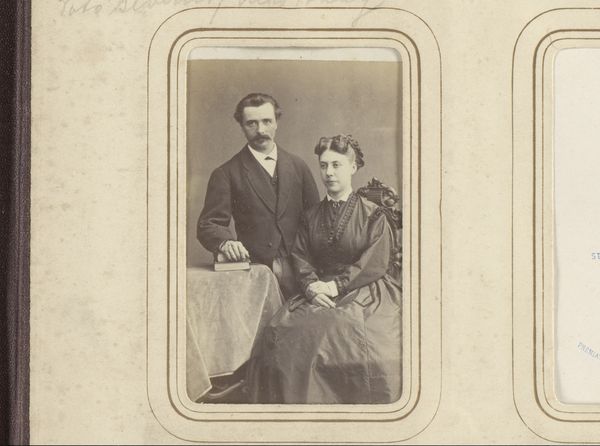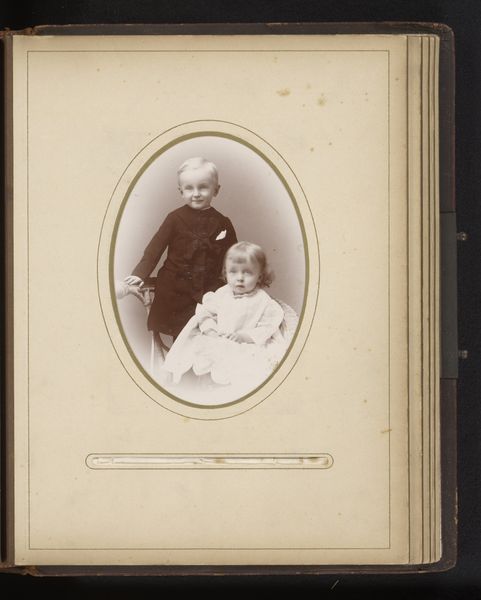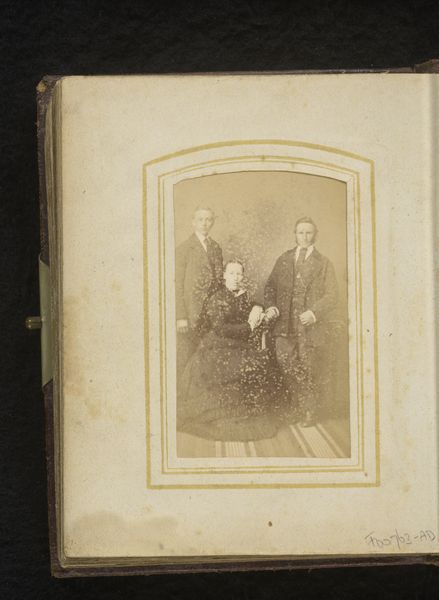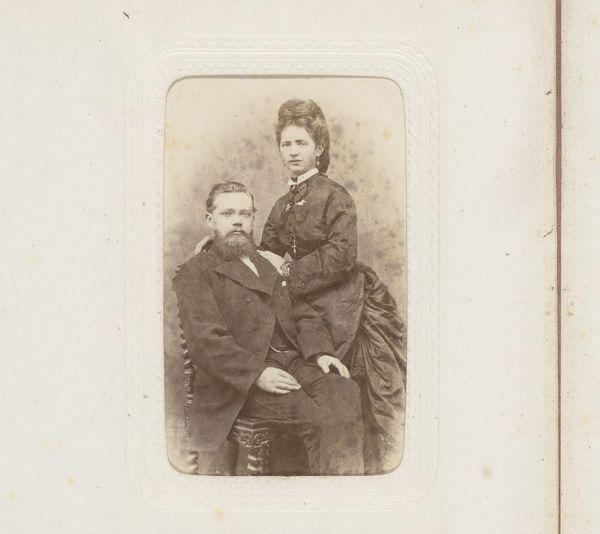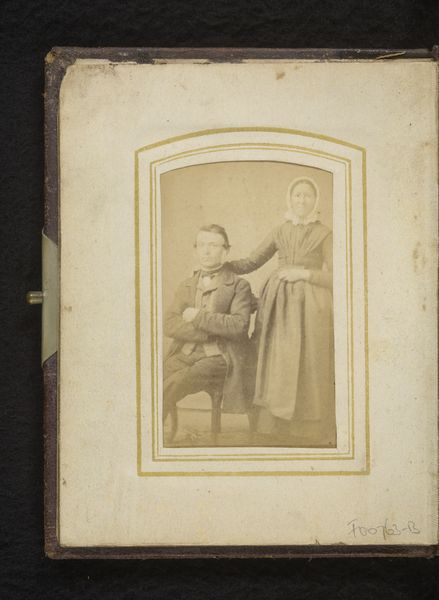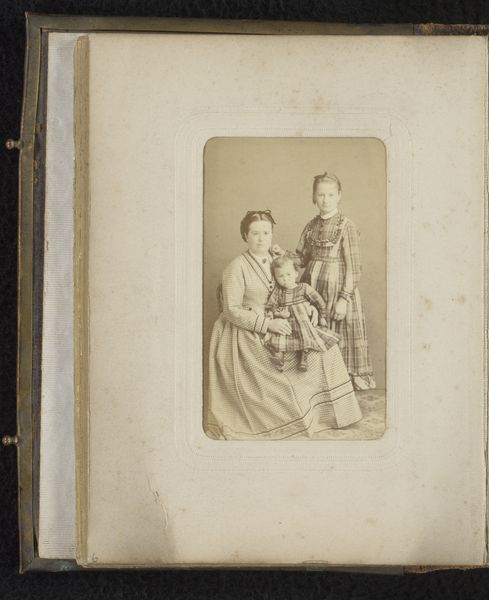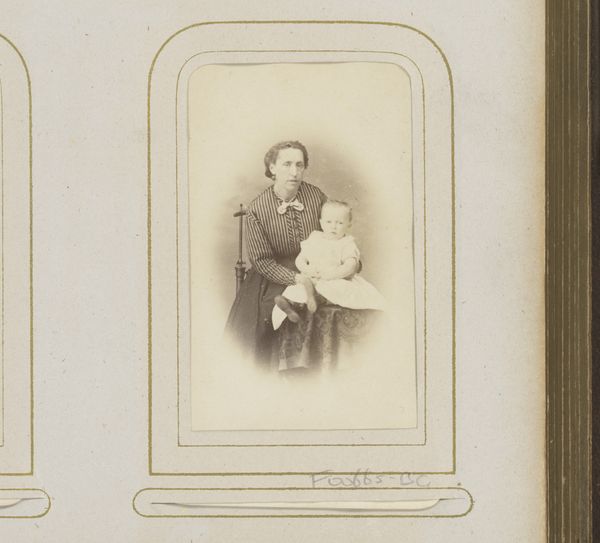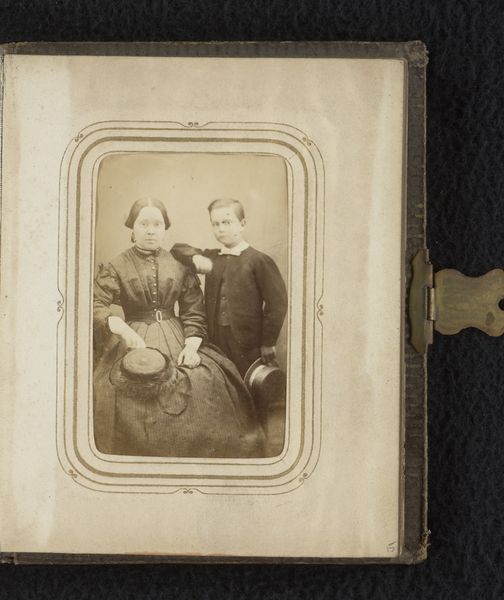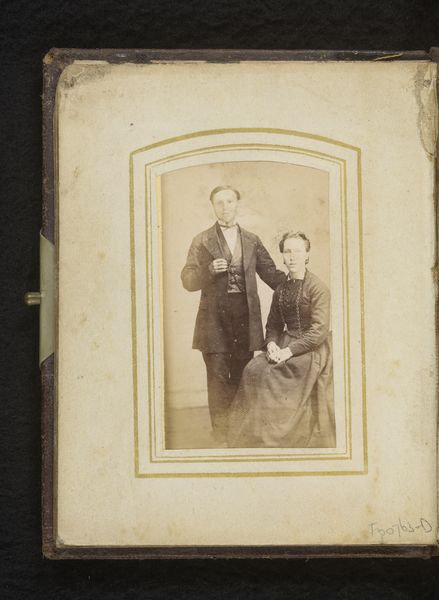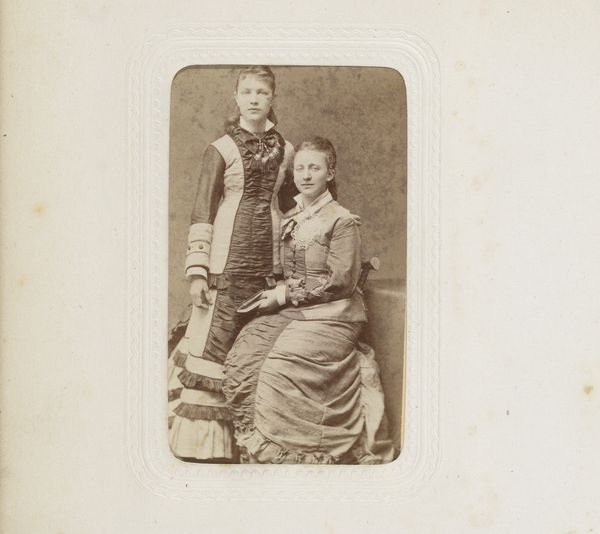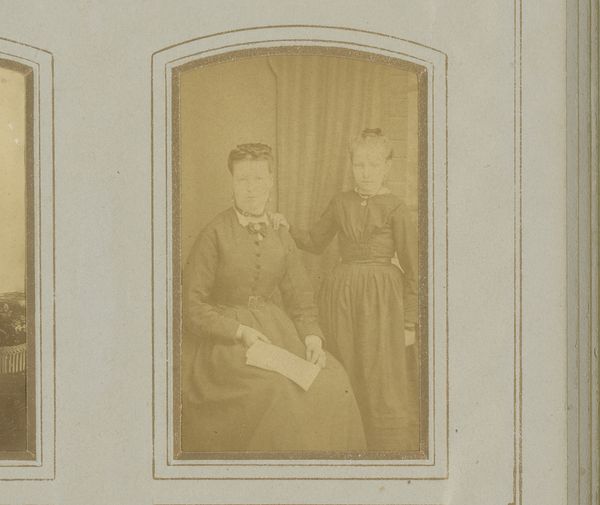
photography, gelatin-silver-print
#
beige
#
portrait
#
aged paper
#
toned paper
#
16_19th-century
#
vintage
#
photo restoration
#
photography
#
historical photography
#
brown and beige
#
group-portraits
#
gelatin-silver-print
#
19th century
#
warm-toned
#
brown colour palette
Dimensions: height 82 mm, width 51 mm
Copyright: Rijks Museum: Open Domain
Editor: Here we have a gelatin silver print from between 1860 and 1900, titled "Portret van een zittende vrouw met waaier in de hand en een staande man" - "Portrait of a seated woman with fan in hand and a standing man" by A. Basler. It’s… sepia toned and faded, but something about the couple's clasped hands strikes me as meaningful. What do you see in this piece? Curator: Beyond a simple portrait, this image embodies a potent negotiation of gender roles within the Victorian era. How does their body language strike you? Do you feel the tension? Editor: Well, the woman is seated, holding a fan – seemingly passive. But she also meets the camera’s gaze directly. And he's standing protectively, perhaps, but seems slightly behind her. Curator: Exactly. The composition reveals their roles, yet the woman's direct gaze subtly challenges the expected demure passivity. The fan becomes less about delicate femininity and more of a quiet assertion of self. Consider how photography at this time was becoming increasingly accessible, allowing for wider representation. Editor: So, it's about questioning those conventions? A hidden message within a formal portrait? Curator: Precisely. It is very interesting that their hands are clasped. Who decided on this composition and body language? How do their clasped hands create unity, or emphasize a power dynamic? It’s in the small, seemingly insignificant details, like the slight upturn of her lip that hints at the complex dynamics at play, isn't it? This makes us rethink about the assumptions about power, gender, and representation during the 19th Century. Editor: I see it now! I originally took it at face value, but thinking about it through that lens is fascinating. I would have missed the underlying currents otherwise. Curator: It’s a photograph that invites a critical examination of history. Thinking of art in the past as an act of questioning societal structure definitely opened a new dimension for me.
Comments
No comments
Be the first to comment and join the conversation on the ultimate creative platform.
